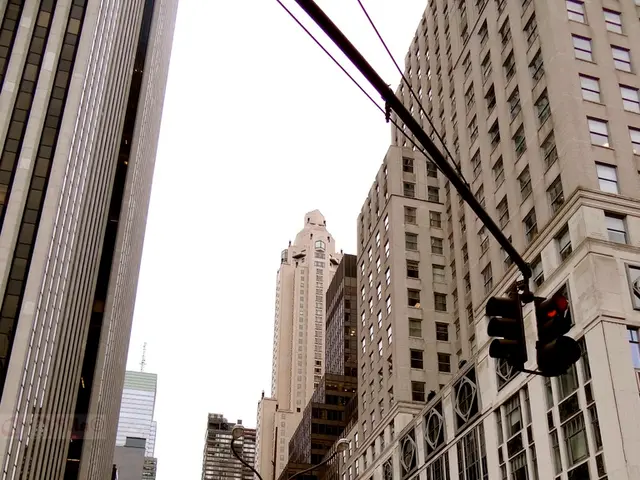The shift towards clean energy is inevitable, but what are the obstacles hindering its progress?
A policy dialogue titled "Just Energy Transition in Bangladesh: Challenges and Way Forward" was recently held, attracting government officials, NGO leaders, green energy campaigners, and executives of financial institutions. The event was jointly organized by ActionAid Bangladesh, the Institute for Energy Economics and Financial Analysis (IEEFA), and Just Energy Transition Network Bangladesh.
The energy secretary, Mohammad Saiful Islam, spoke at the event, emphasizing the importance of decision-making and financing for promoting energy transition. He also highlighted the issue of rampant corruption in the energy sector, stating that it makes it difficult to focus on energy transition.
Farah Kabir, Country Director of ActionAid Bangladesh, chaired the programme, and Shafiqul Alam, IEEFA's lead analyst of energy for Bangladesh, presented the keynote papers. Several notable attendees included Rezaul Karim Khan, director (power) of BERC; Abul Kalam Azad, manager (Just Energy Transition) of ActionAid Bangladesh; SM Monirul Islam, deputy CEO and CFO of Infrastructure Development Company Limited (Idcol); M Zakir Hossain Khan, chief executive of Change Initiative; and Mohammad Alauddin, former chairman of Sreda.
Tamim, former caretaker adviser to the Ministry of Power, Energy and Mineral Resources, suggested focusing on gigawatt-hour production instead of megawatt production to promote energy transition. He also mentioned that energy audits could help easily locate who is using how much fossil fuel-dependent power and set targets for consumers to reduce fossil fuel consumption gradually.
Ratan Kumar Ghosh, chairman of Sreda, stated that the lack of specialized skilled manpower within the organization is hindering the contribution to energy transition. He also mentioned that Sreda is creating a new organogram to emphasize creating specialized skilled manpower within the organization.
Ijaj Hossain, an energy expert, proposed storing electricity in batteries for later use at night to promote green energy.
Current Challenges
The current challenges for a just energy transition in Bangladesh include corruption and policy unpredictability, shortage of specialized skilled manpower, and solar power development hurdles.
Corruption and policy unpredictability create risks and financial losses for renewable energy investors. There are reports of cancelled solar projects after investors had already acquired land, leading to conflicts and losses. Such cancellations and lack of transparency exacerbate distrust and discourage long-term investment.
The rooftop solar sector and wider renewable energy deployment suffer from limited capacity in qualified companies and skilled personnel. Only about 15 to 20 high-quality Engineering, Procurement, and Construction (EPC) companies are active in Bangladesh, insufficient to meet ambitious targets rapidly.
Despite strong potential for solar energy exceeding current and projected demands, multiple institutional and technical challenges slow growth. These include complex and numerous licensing requirements, difficulties in land acquisition, particularly for khas (government) land mired in disputes, limited sanctioned electric load in priority installation sites, financial challenges, logistical and technical issues, and grid management and storage capabilities.
Strategies to Address These Challenges
Strategies to address these challenges include stronger, consistent government policies and transparent, stable regulations to build investor confidence and prevent harmful project cancellations. Clear, supportive rules for land acquisition and licensing are essential.
Capacity building and training programs are needed to expand the number of skilled professionals and qualified EPC companies capable of rapid deployment of rooftop solar and other renewable projects.
Refining the net metering framework and increasing sanctioned electric load thresholds on institutional rooftops to realistically match solar installation targets or opening the market to other types of installations beyond government buildings could help.
Financial mechanisms such as public funding for government rooftop solar projects (CAPEX model) and incentivized operational expenditure models for hospitals and educational institutions could attract private investment.
Addressing land scarcity through innovative solutions and dispute resolution mechanisms, as well as reducing import duties on solar equipment to lower costs, could also help.
Upgrading grid management and storage capabilities to handle intermittent solar generation and ensure supply stability as solar penetration grows is crucial.
In sum, Bangladesh’s just energy transition faces intertwined institutional, financial, technical, and capacity constraints. Meeting ambitious solar goals by the end of 2025 and beyond demands coordinated efforts to reduce corruption and policy risk, rapidly build specialized manpower, and overcome solar development bottlenecks through clearer policy, financial innovation, and infrastructure modernization.
It is worth noting that the energy transition from fossil fuels to clean energy is not currently an official priority.
[1] [2] [3] [4] [5] References available upon request.
Read also:
- More than half of British homes adhere to insulation standards established during the 1970s.
- While Éowyn's storm caused a massive €301 million in damages, fossil fuels maintain their position as the leading power source.
- Transition in Energy: Merz Administration Plans Enactment of Heating Revolution from 2026
- German Obsession with Luxury Vehicles Thriving Amid Traffic Congestion








